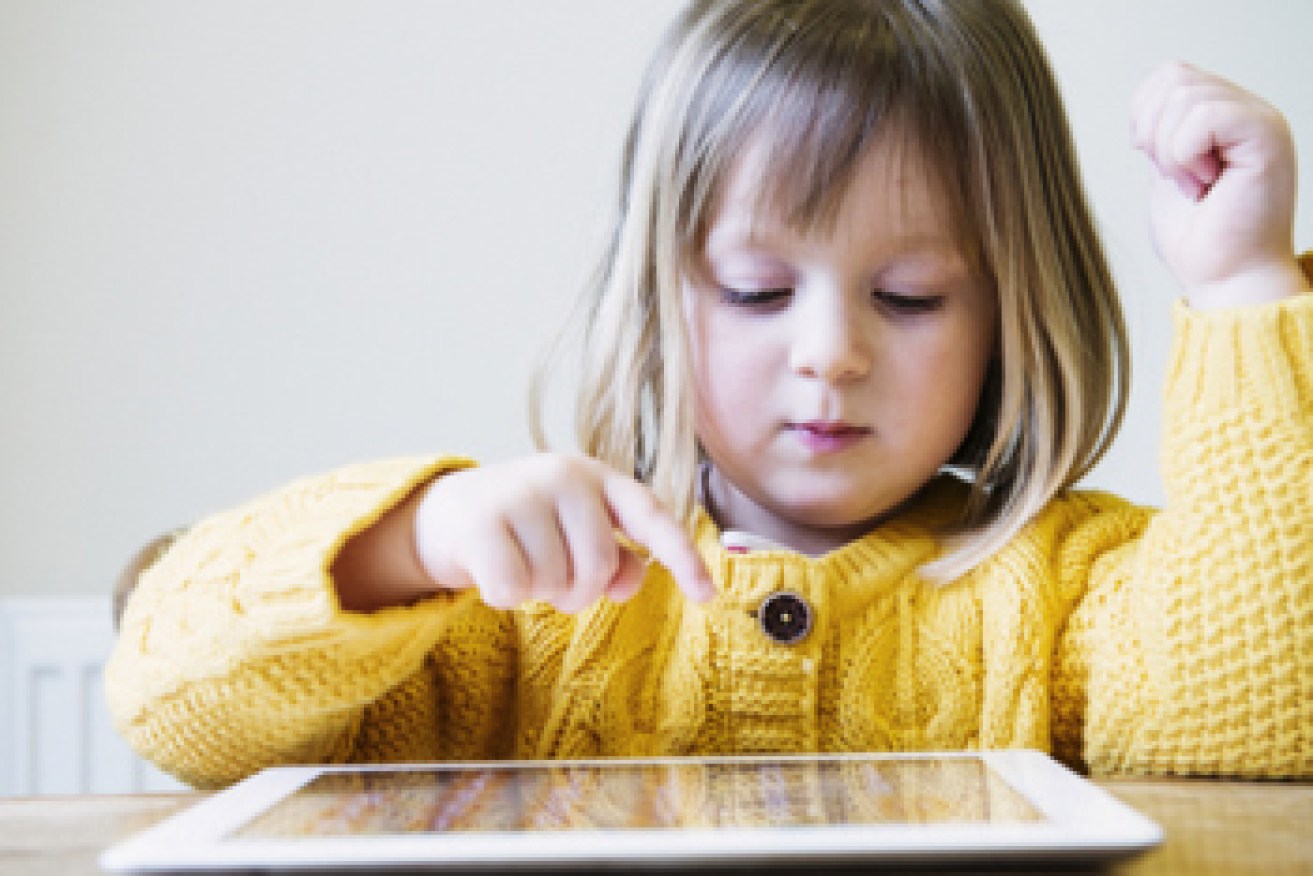Child’s play: you should buy your toddler an iPad

Girl iPad. Photo: Getty
Parents need not be frightened of toddlers using tablets, according to an expert.
For months, Western Sydney University’s Dr Joanne Orlando, who researches technology use by children, has visited and observed 30 Sydney families, drawing on these encounters to conclude that iPads and other tablets are not the mind-numbing, eye-ruining scourges they are accused of being.
• Dr Karl takes aim at Generation Gullible
• Apple’s giant, expensive new iPad Pro is not for everyone
• The amazing high-tech gadgets coming your way
By her estimate, approximately 80 per cent of one year olds are using technology regularly, with iPads and other tablets increasingly becoming the birthday and Christmas gift of choice for this age group. And that’s okay.
“We hear so much that technology is bad, bad, bad. A lot of that isn’t based on any research, so finally now we have some research to help and guide us,” Dr Orlando told The New Daily.
Fear not

It seems it is okay to embrace technology. Photo: Getty
The academic’s message may surprise parents, many of whom worry about technology’s impact on their young child’s learning, speech, eyesight, social skills and physical activity.
Contrary to popular fears, there is currently no scientific evidence that technology hurts the eyes, other than causing fatigue.
Far from being detrimental, tablets are “very powerful” learning devices if used correctly, Dr Orlando claimed, meaning that parents can worry less if Santa delivers an iPad this Christmas.
“Parents are concerned that children will spend all their time on their technology and not play with their other toys, not talk to their family, not make friends, that their social skills and their other skills will suffer as a result.”
The benefits

Tablets allow toddlers to be creative. Photo: Getty
The chief benefits of touchscreen tablets, as opposed to any other piece of technology, is that they afford children a level of dexterity, independence and creativity they would otherwise lack, Dr Orlando said.
“I’m definitely not saying a child should be on their device 24/7 or most of the day or anything like that, but good quality use of tablets or any technology can actually help a child to learn things that they wouldn’t normally learn at a very young age.”
Tablets are also a useful way to unlock a child’s personality, which can be obscured by their lack of language skills and dexterity, Dr Orlando said.
“When they use a touch-screen tablet, it takes away from them having to hold a pencil or having to use their speech to be able to explain themselves or to develop ideas or explore things. They really just have to use their fingertips and that in itself is an enormous advantage,” she said.
“They can create really cool, artistic works and it really shows their artistic ability, often what we think of as being beyond their years, but it probably is their years, just using a different medium.”
How to strike a balance
• Encourage active tasks, such as drawing and games, over video watching;
• Regularly ask your child what they did that day on the tablet;
• Balance tablet use with toys and playing with friends; and
• Teach your child to use voice-activated commands as language practice.









